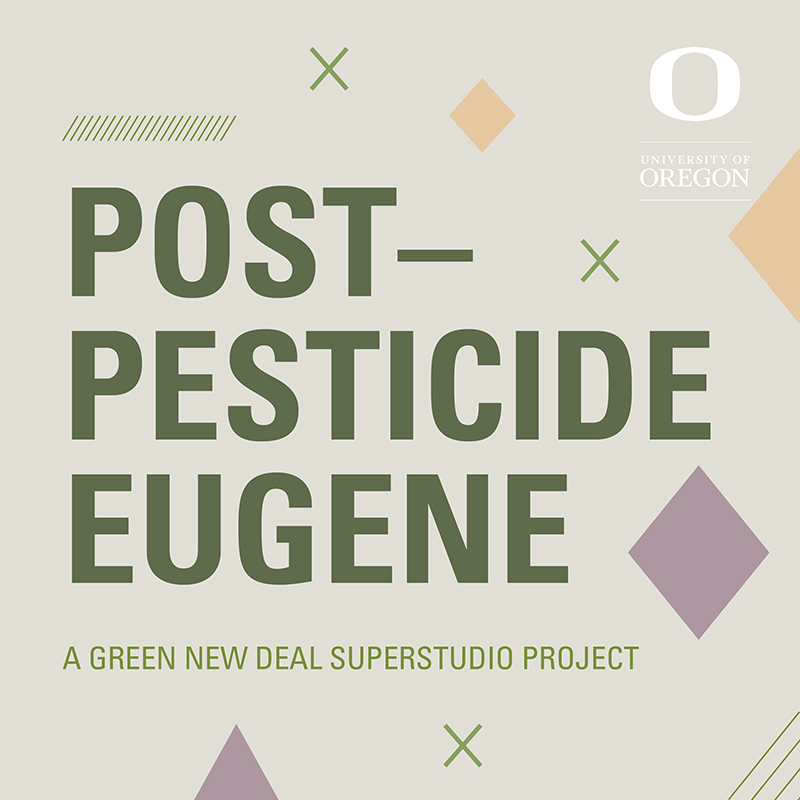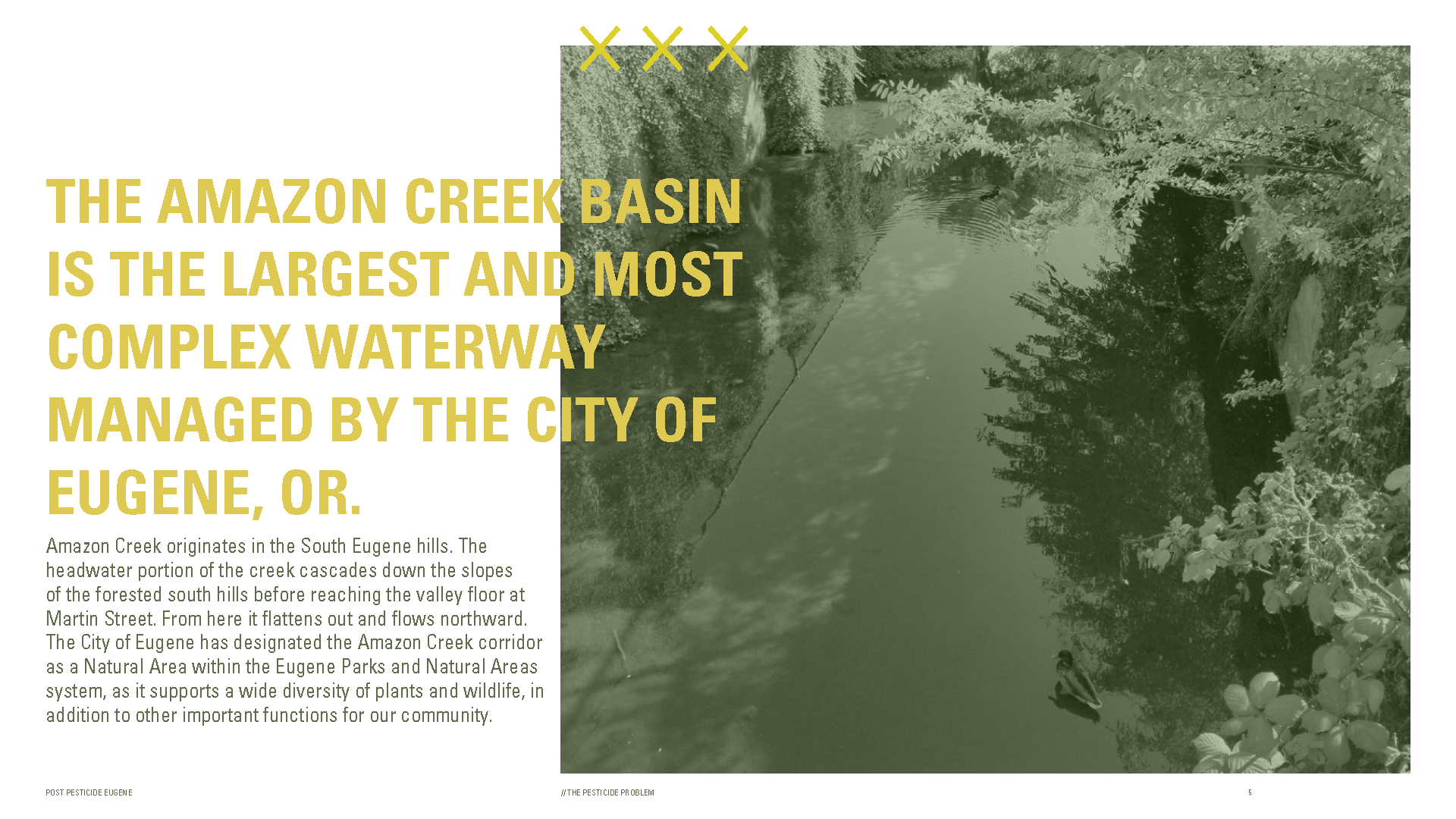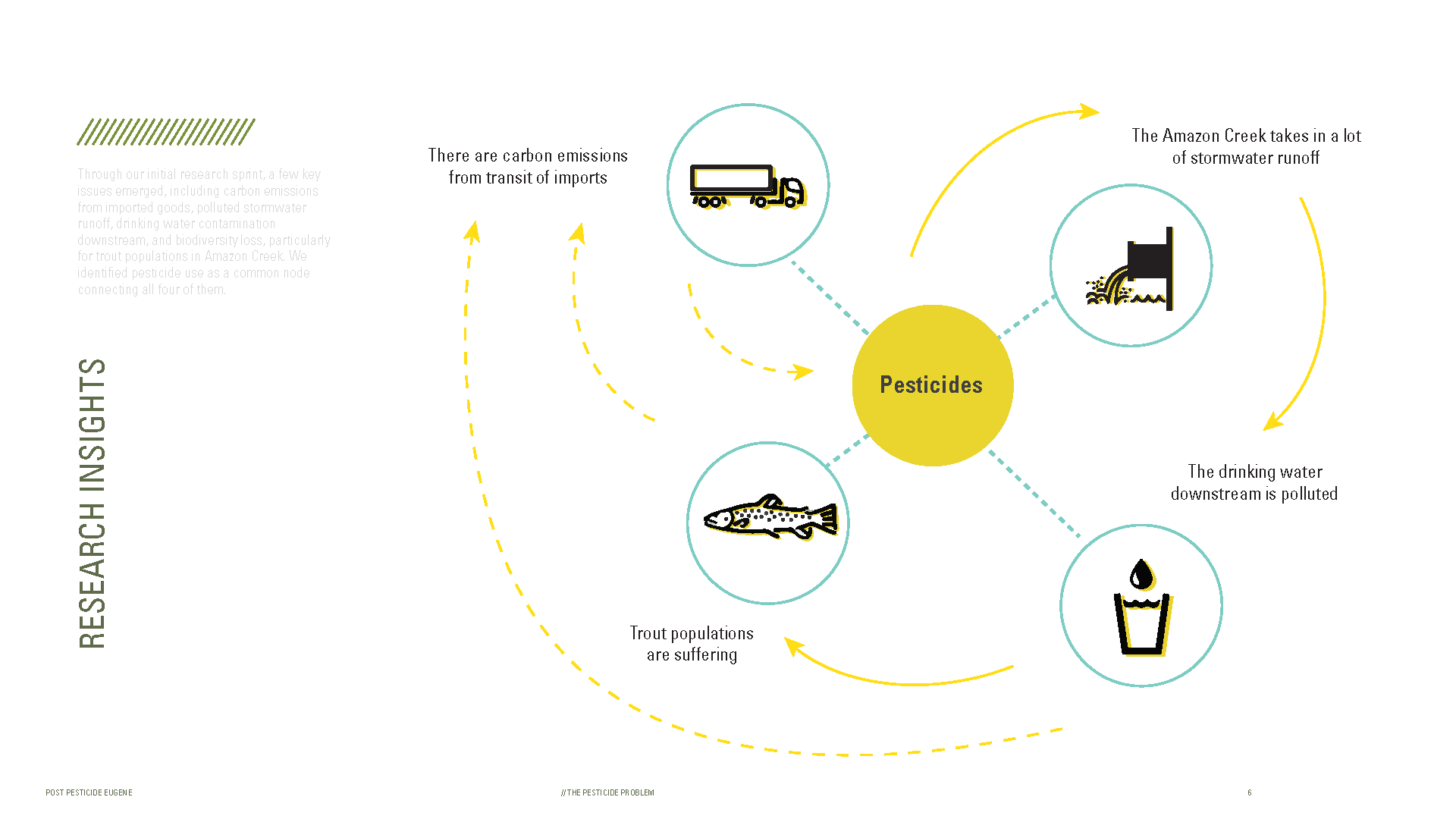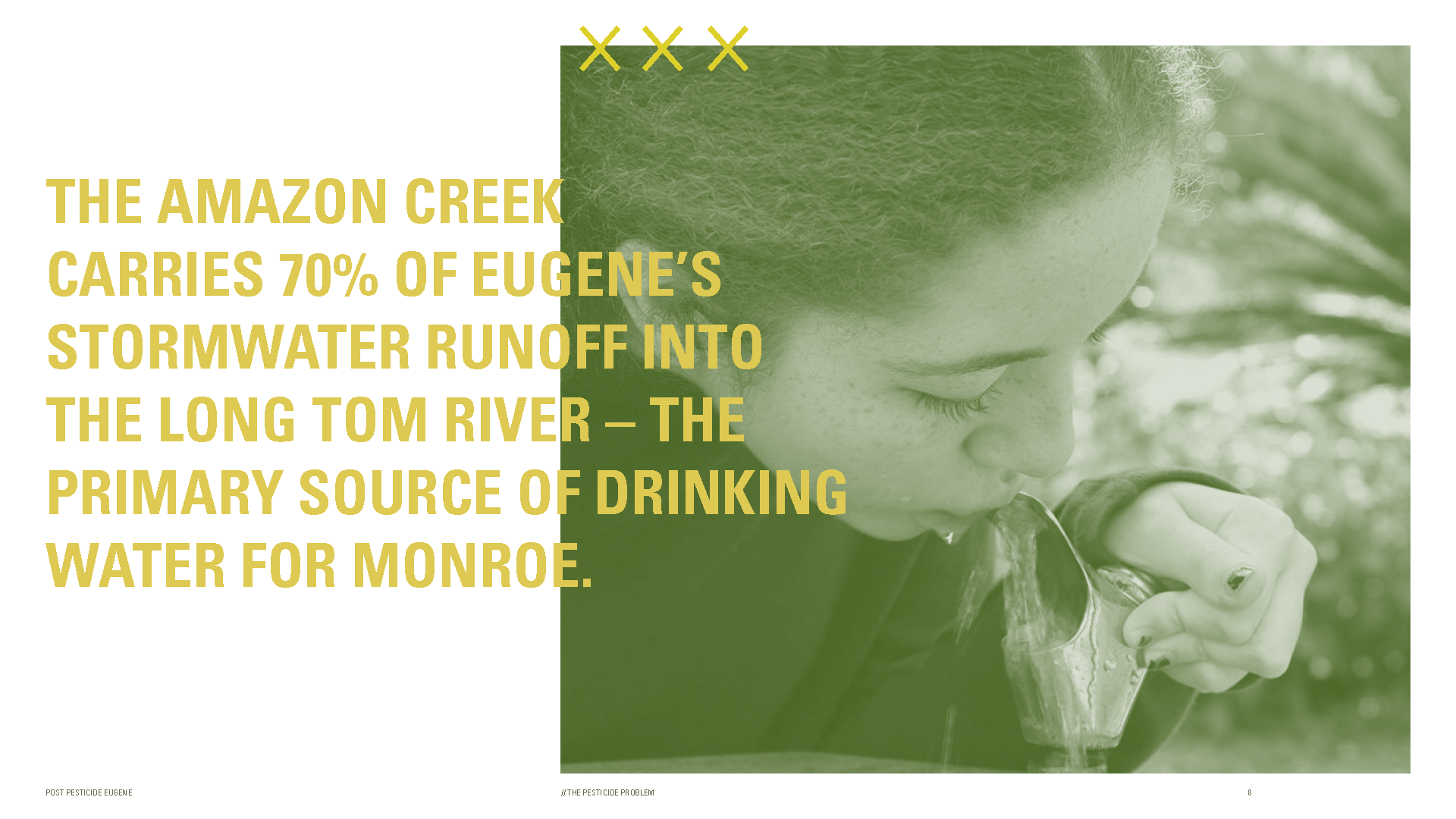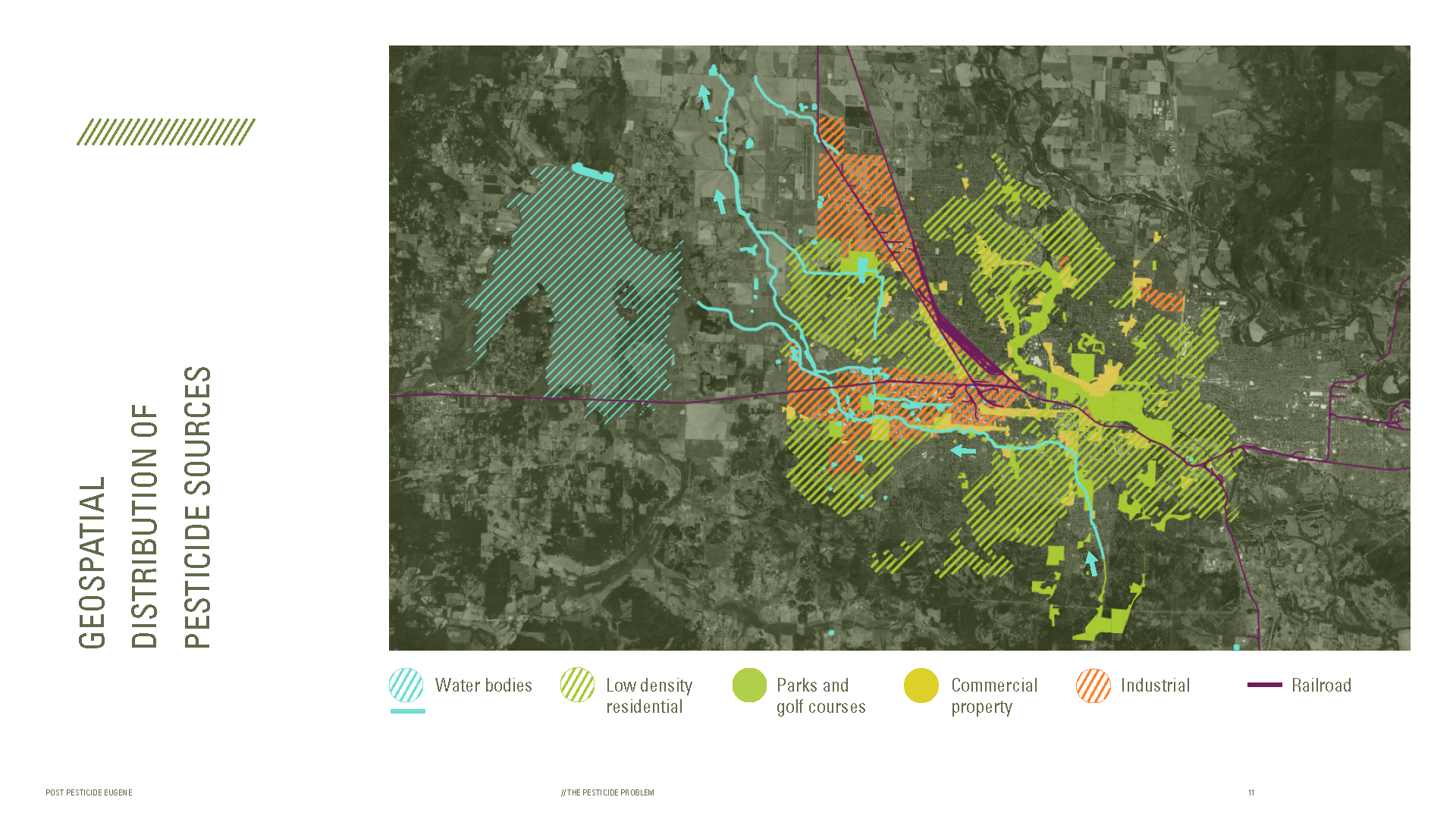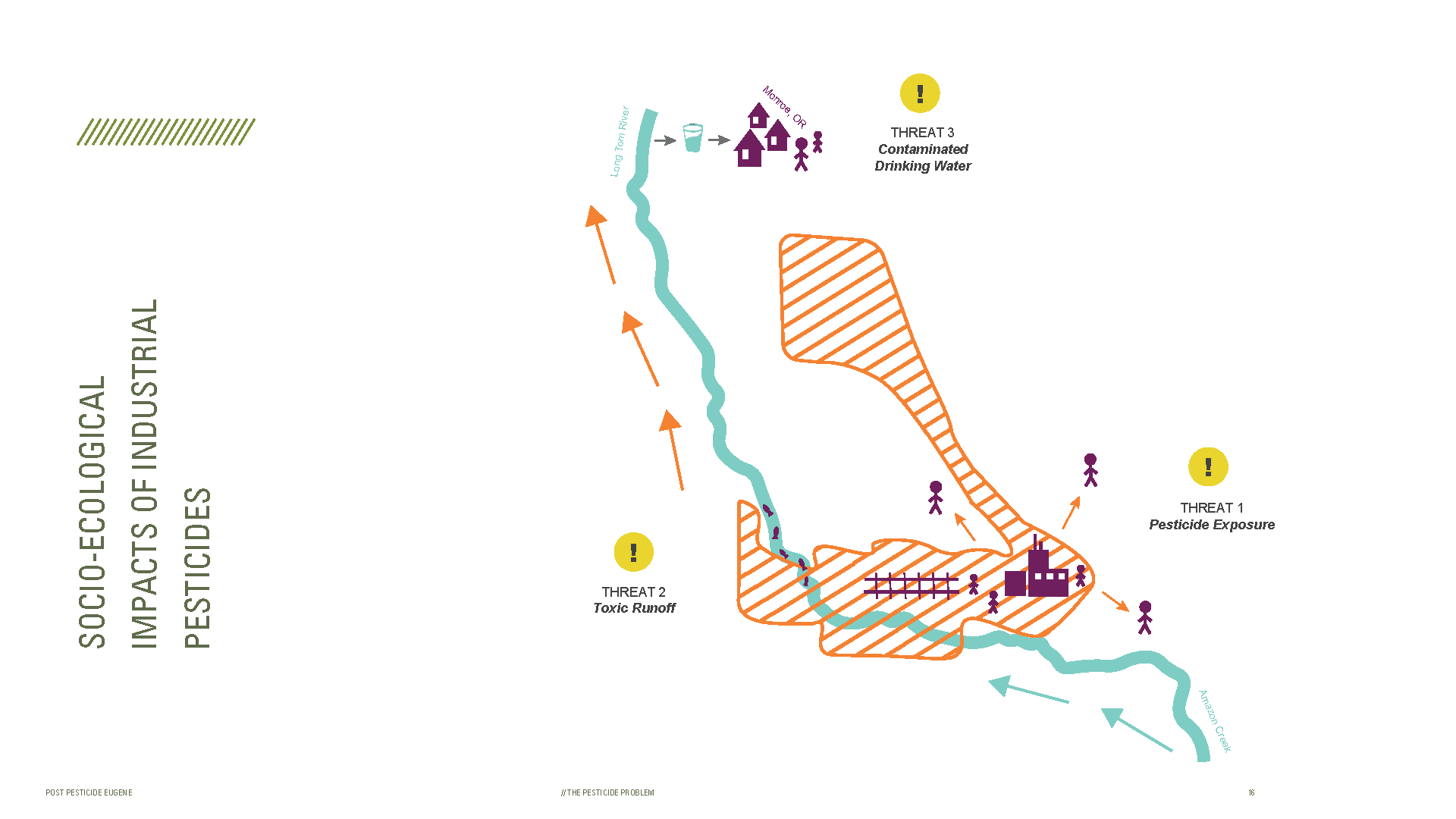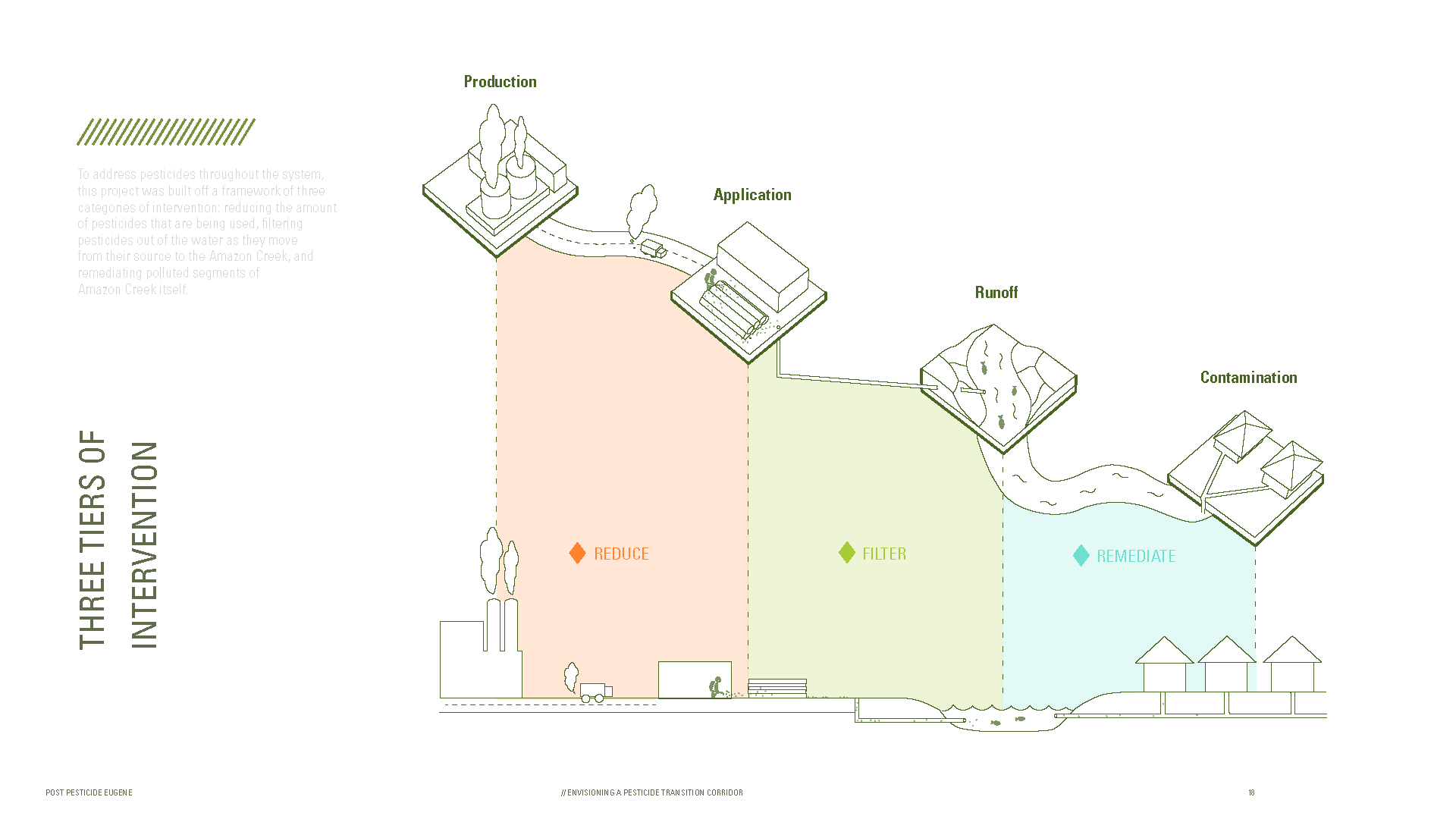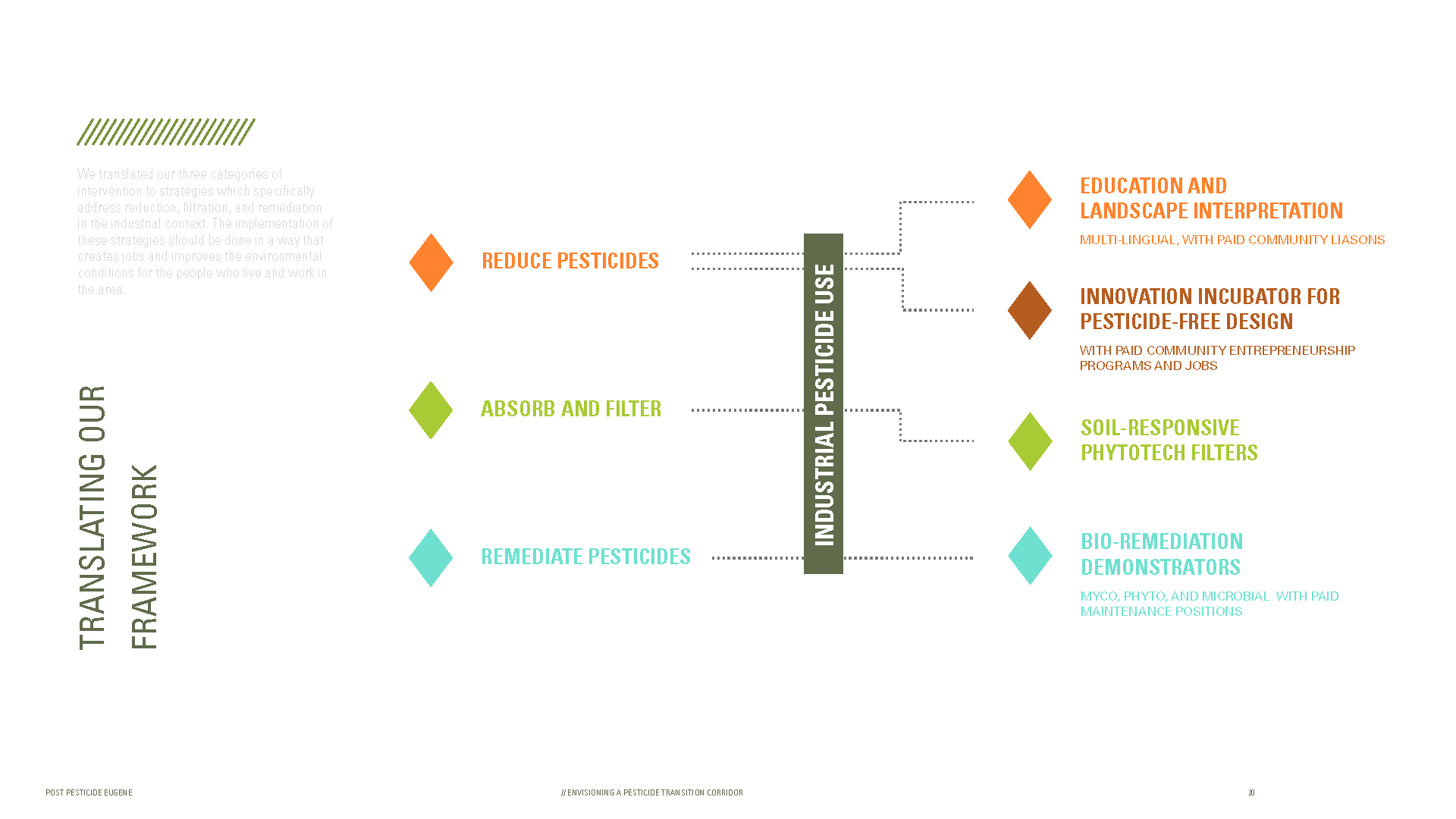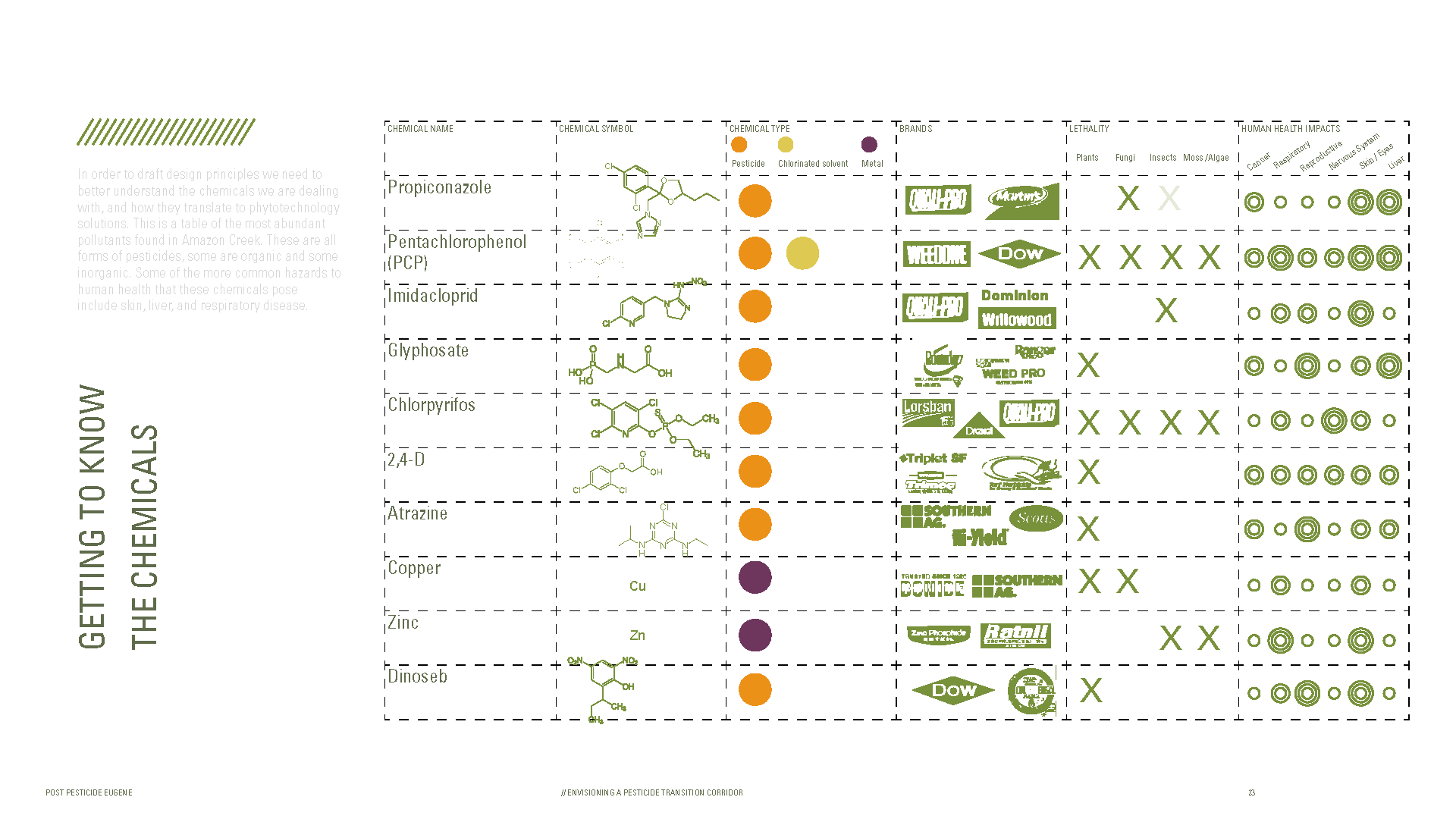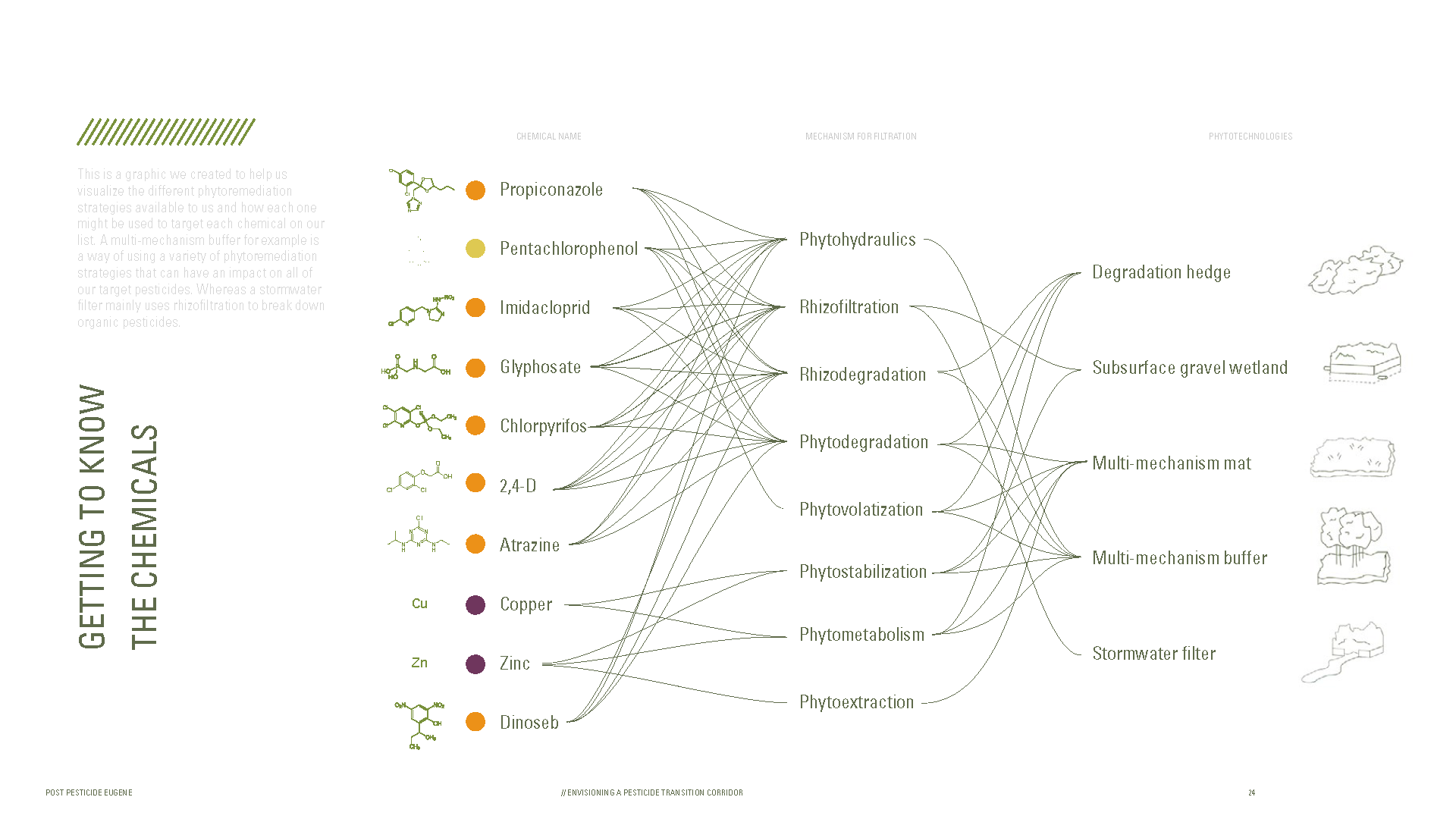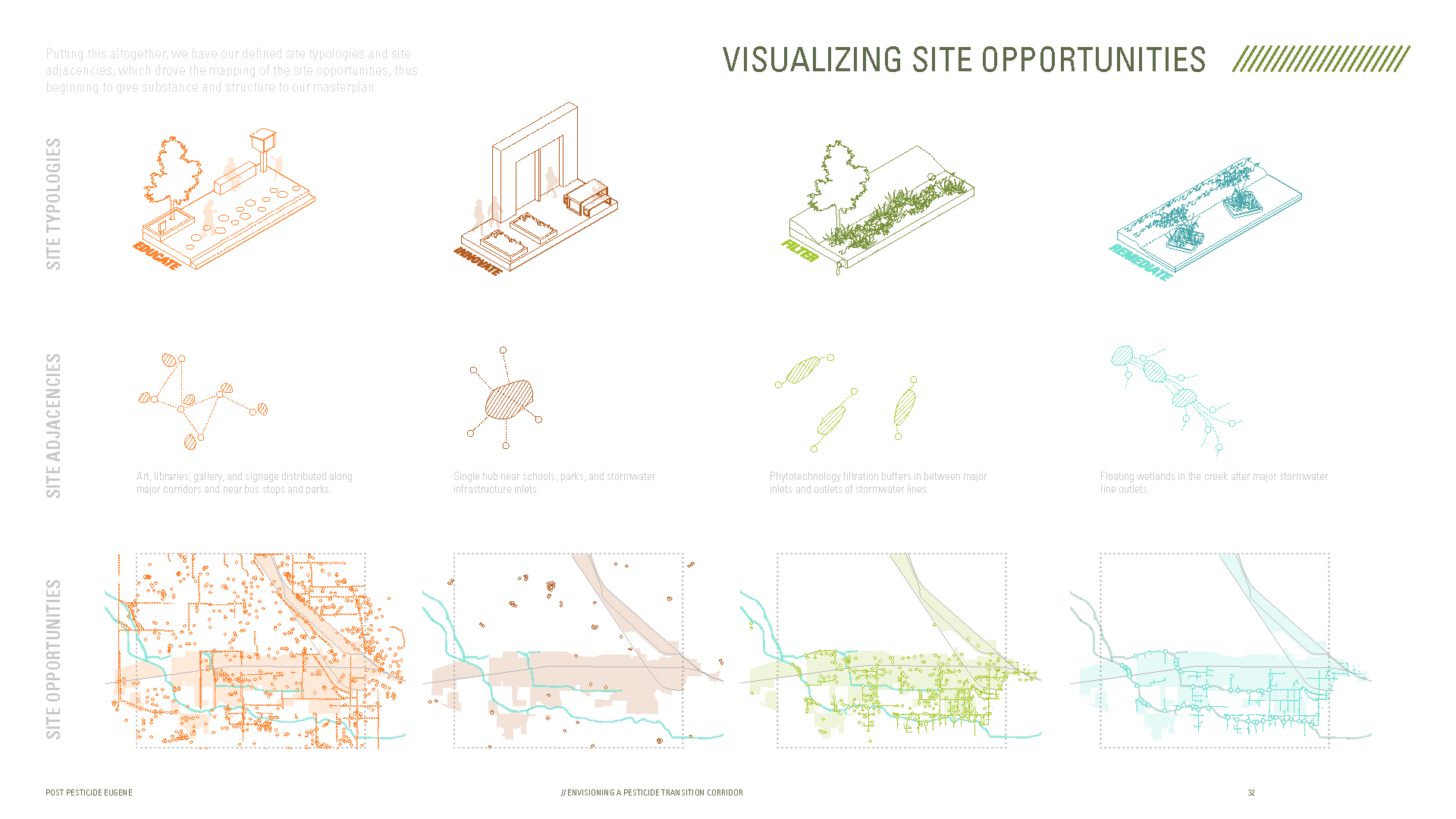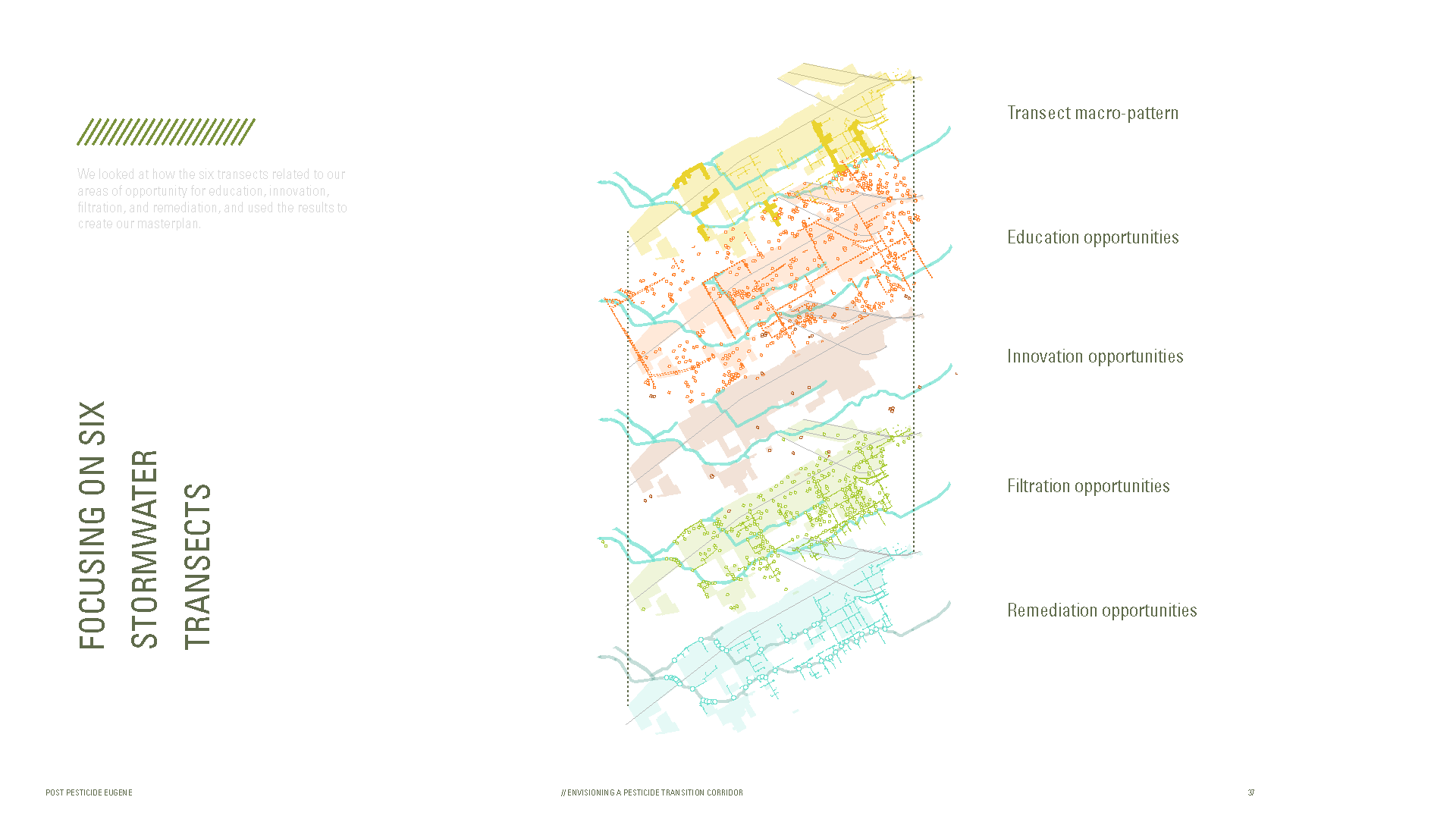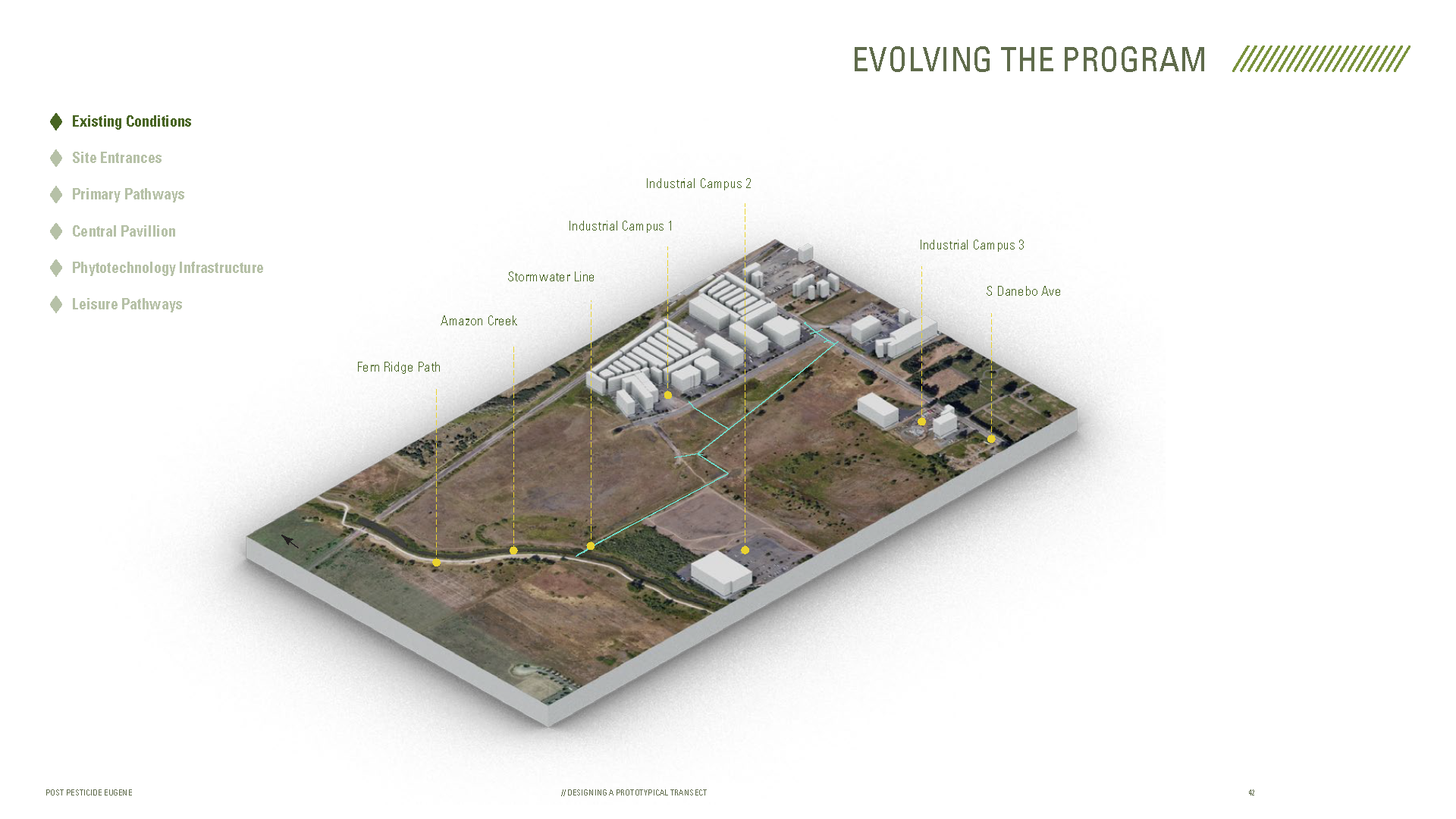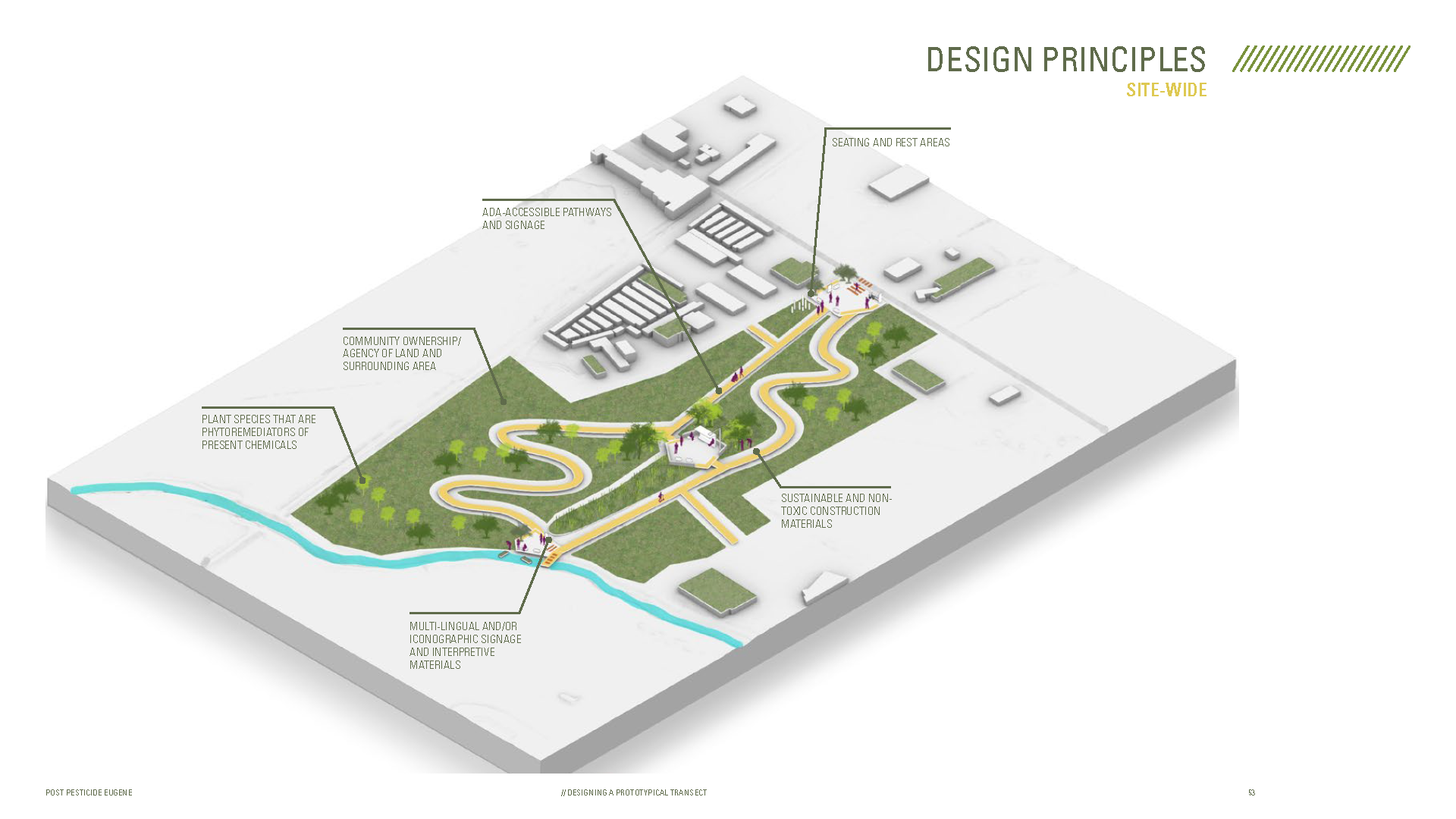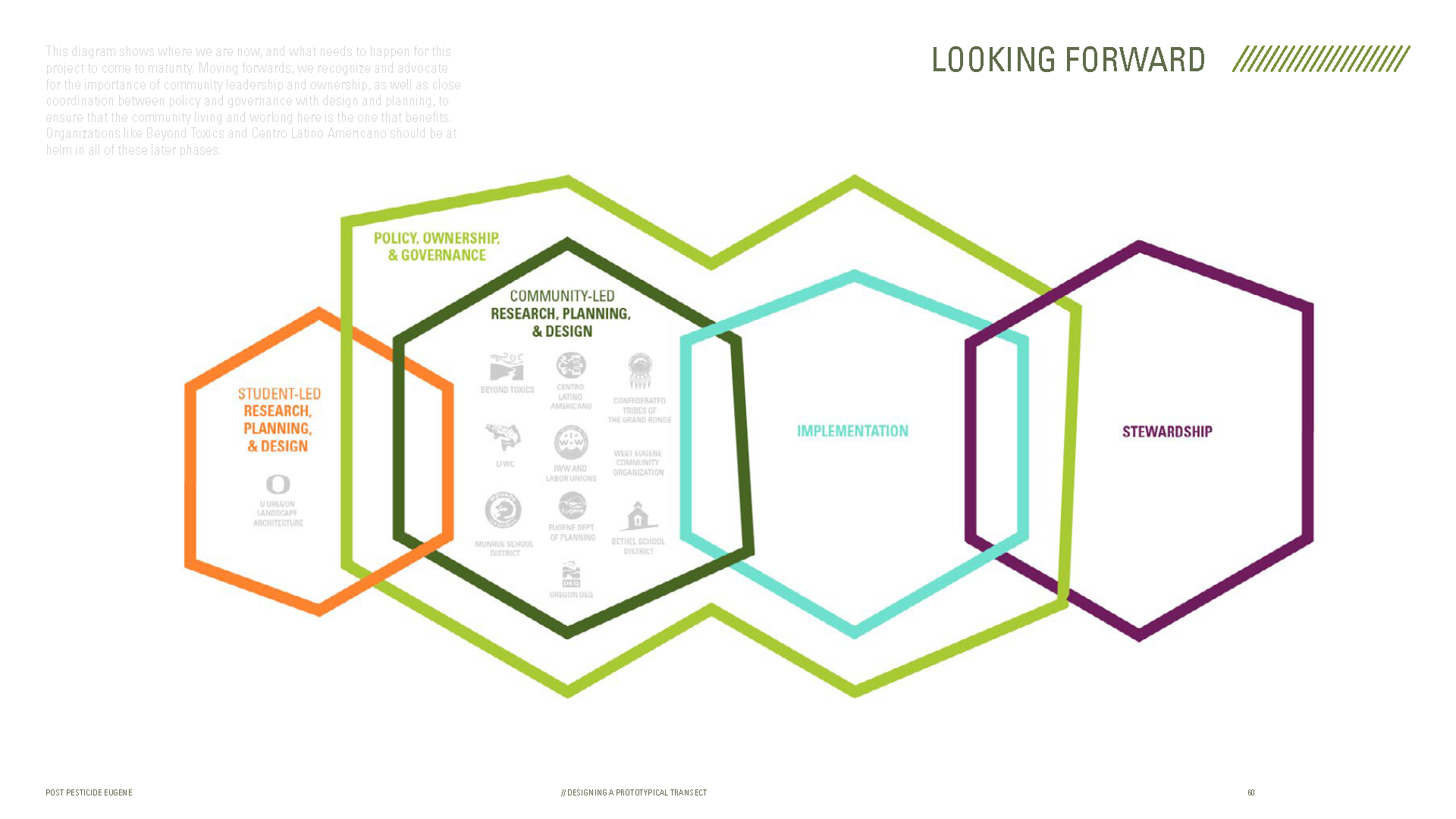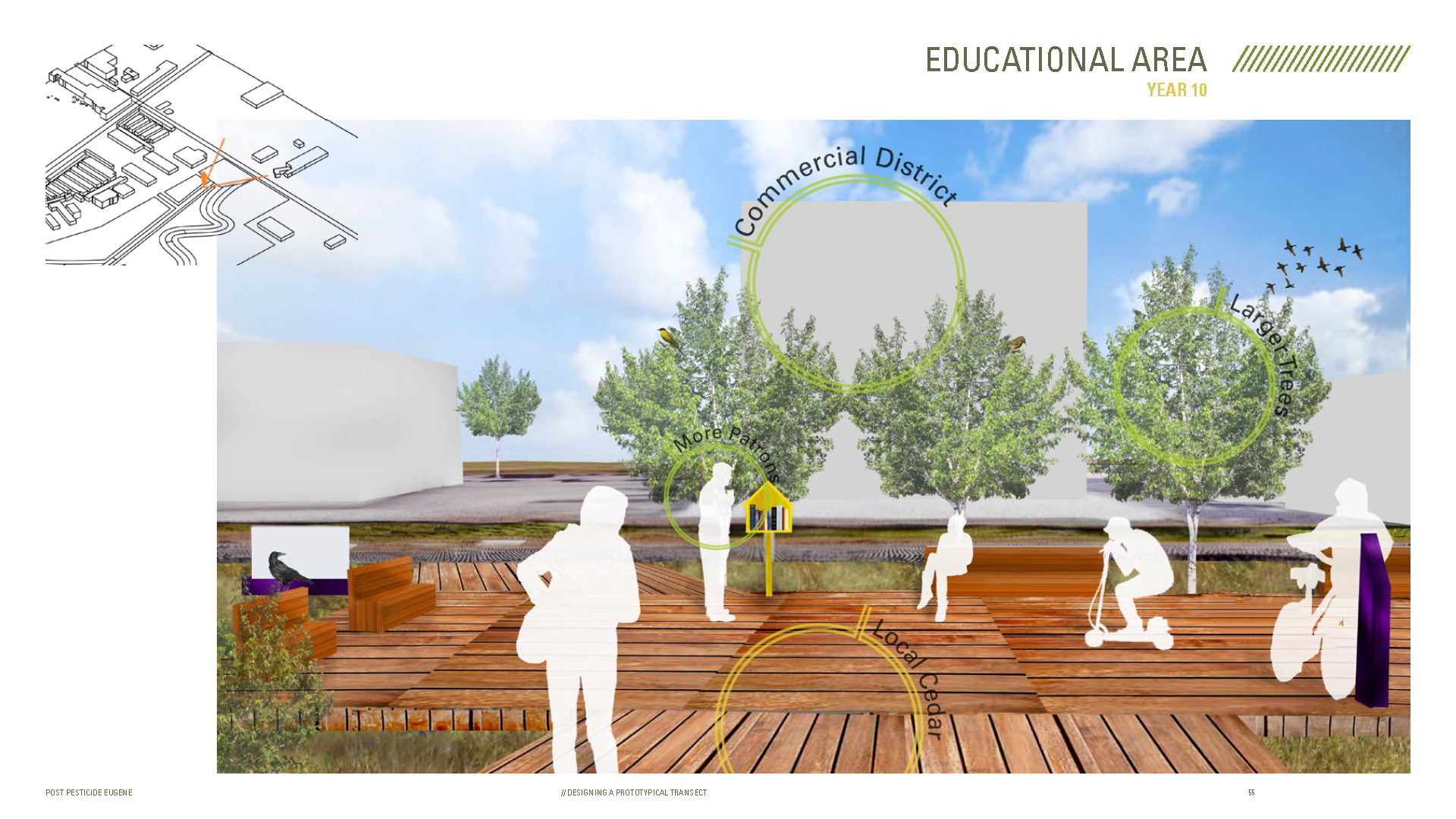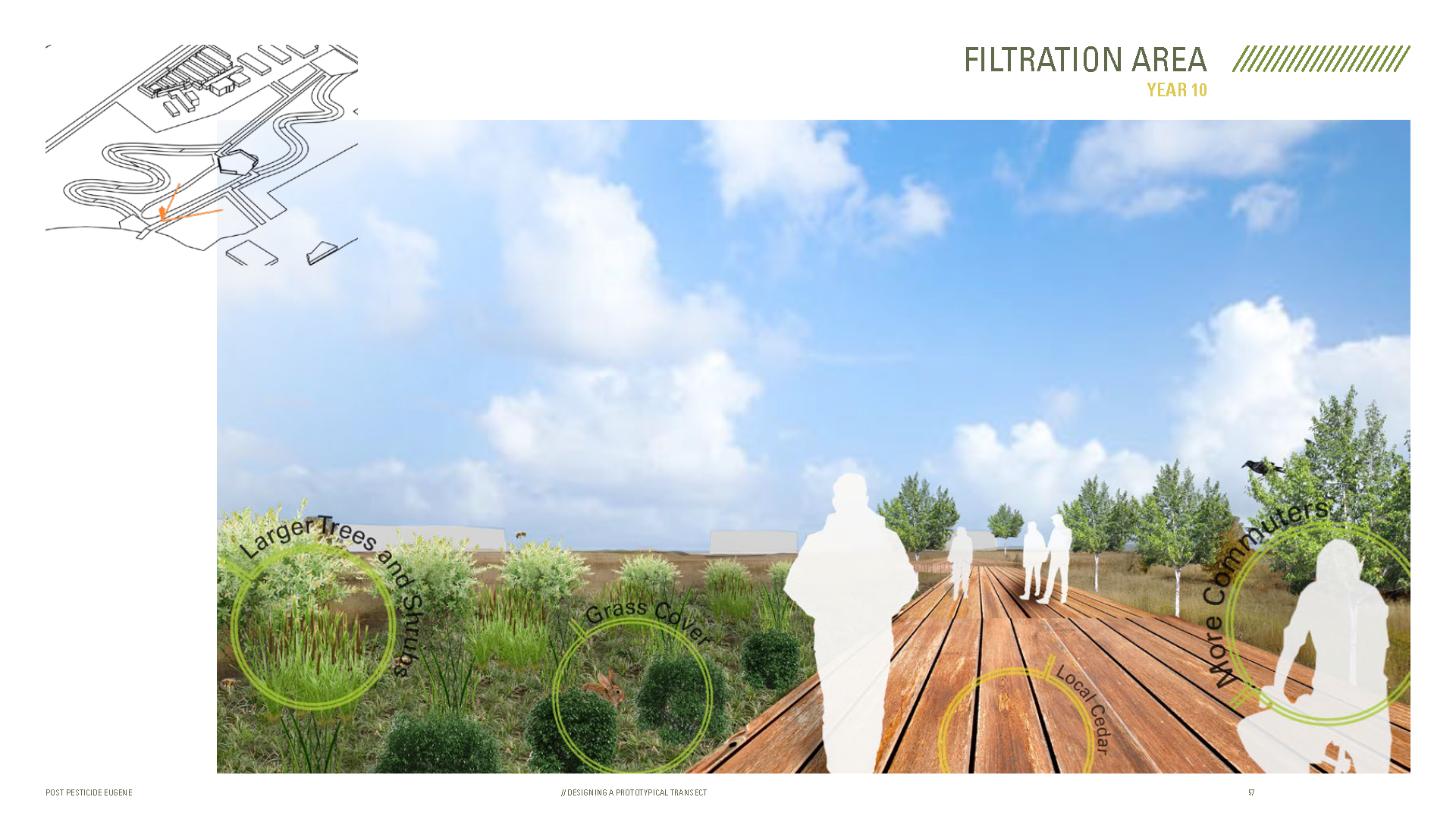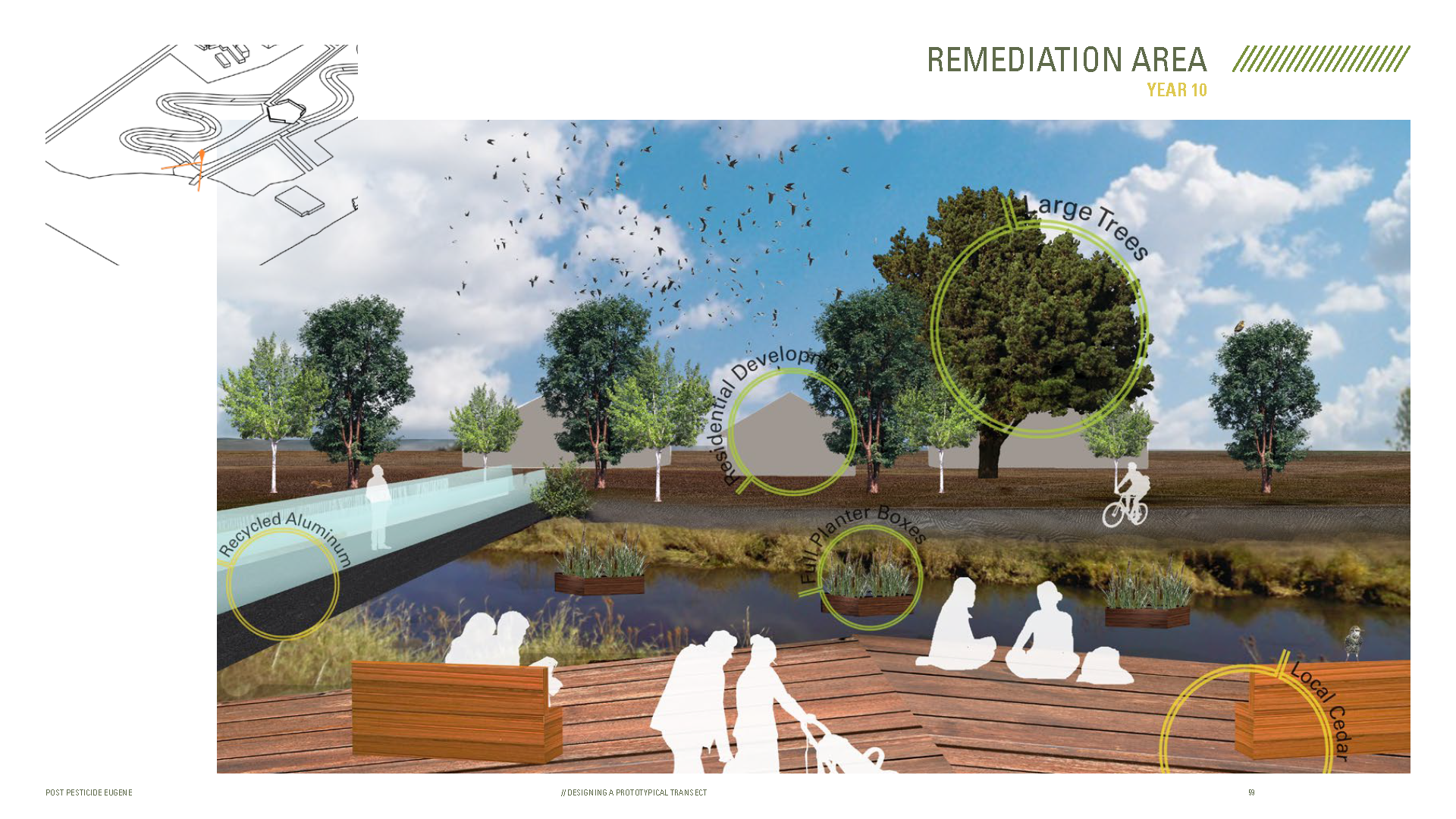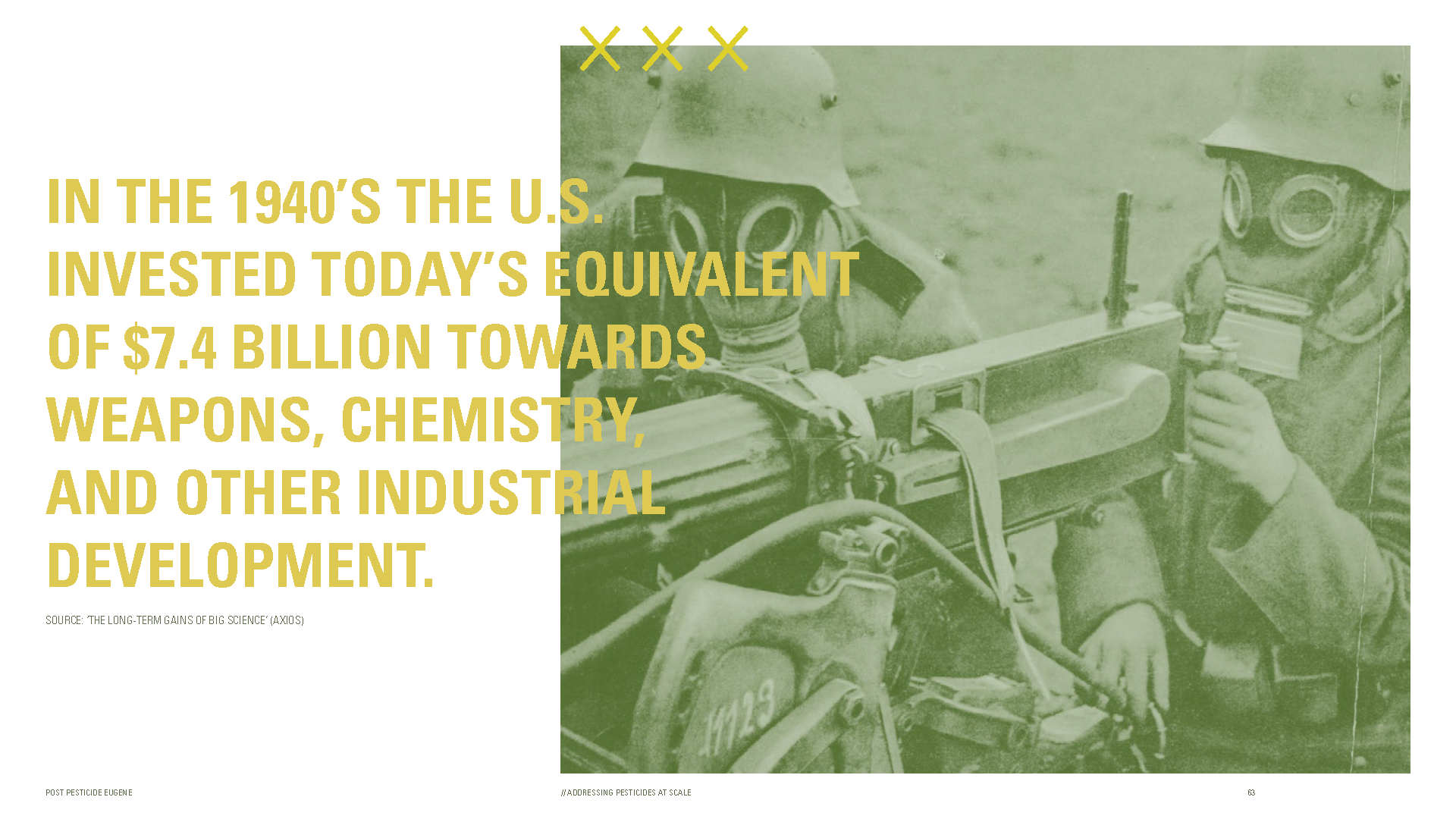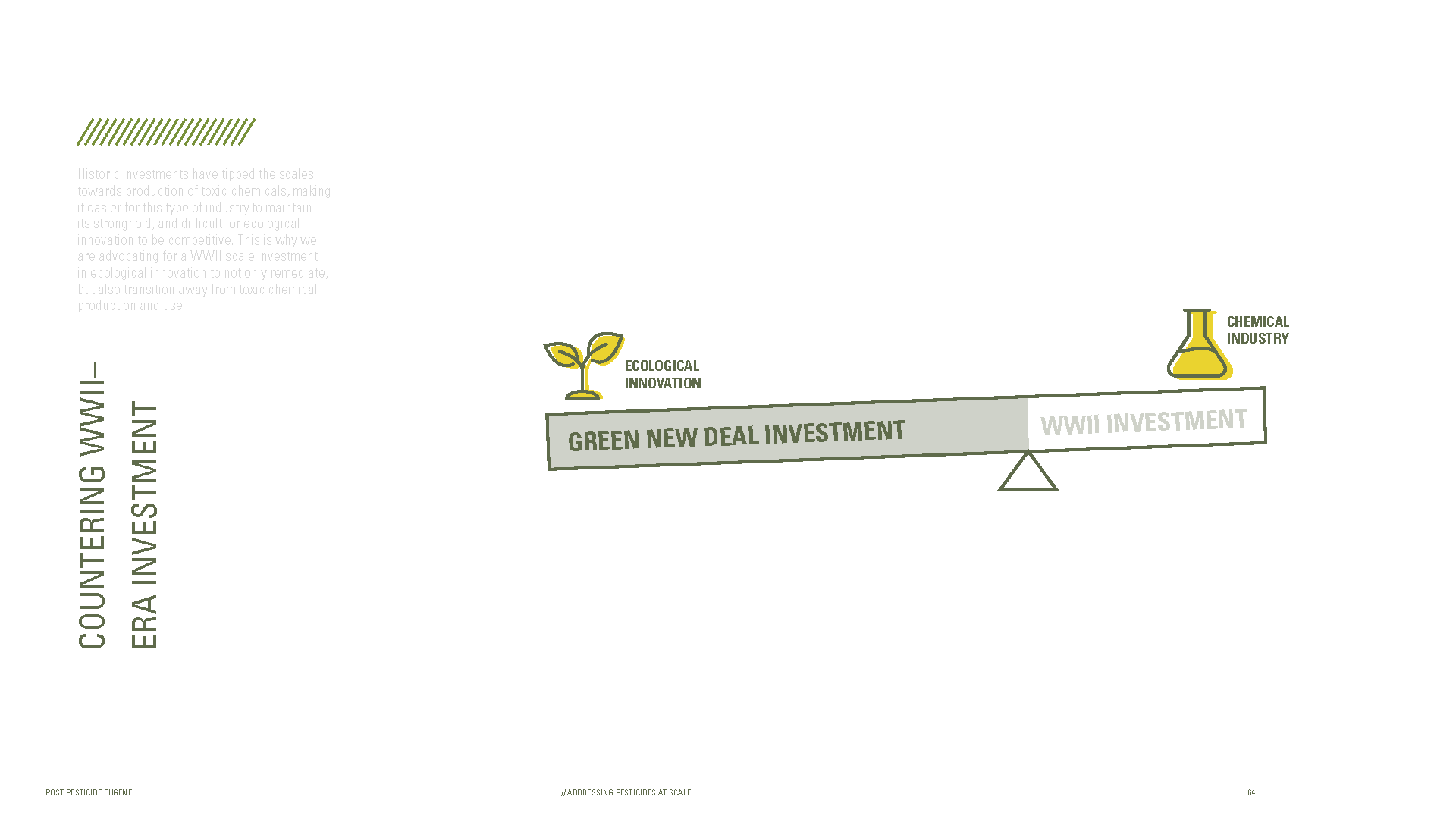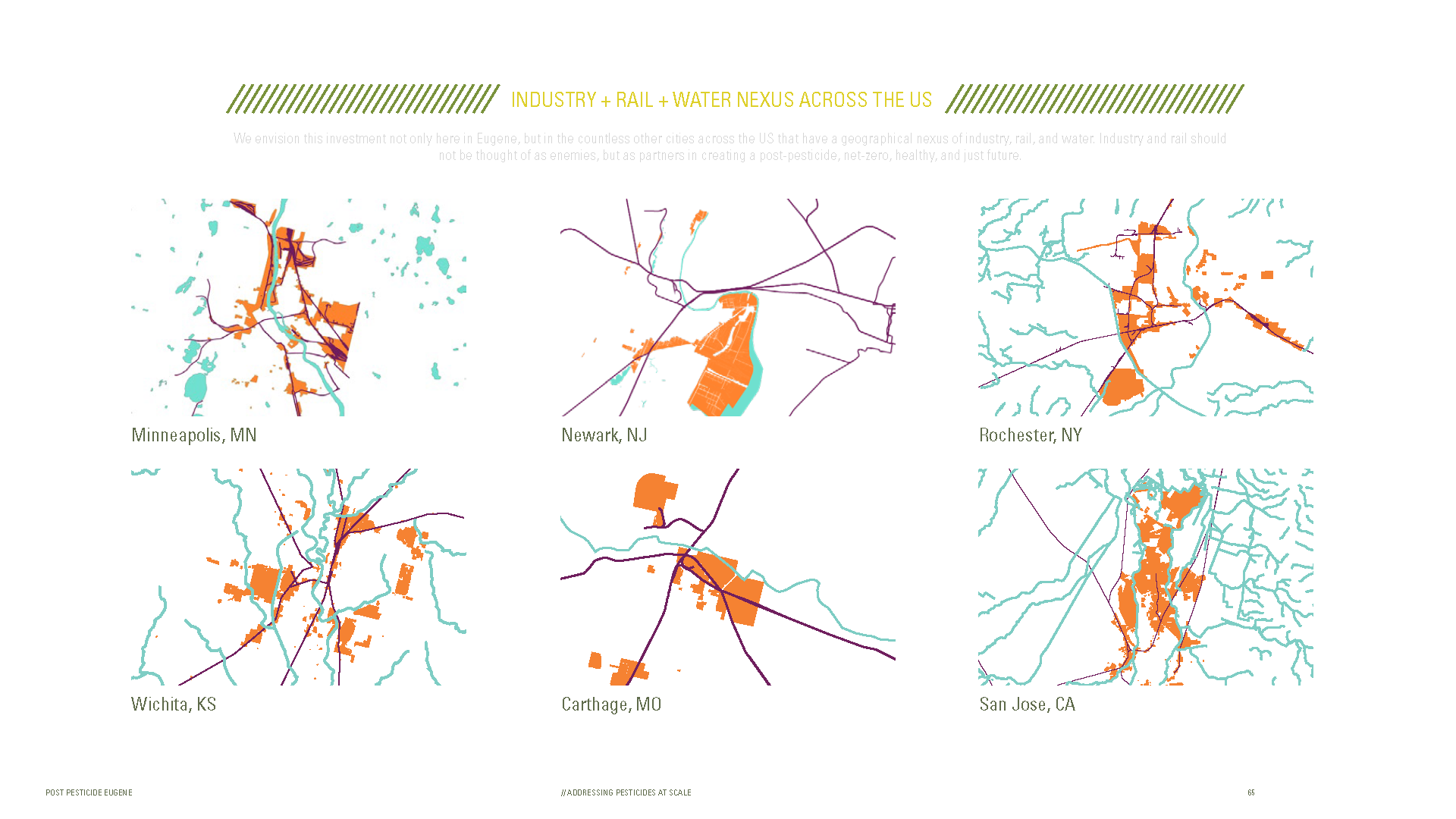Postpesticide Eugene - UO 2021 LA 539 Studio
Instructor: Ignacio Lopez Buson
Students: Jenna Witzleben, Grace Graham,
Natalia Dorkina, Daniel Teeler
In Eugene, Oregon, the Amazon Creek watershed faces high rates of polluted stormwater runoff, biodiversity loss, and greenhouse gas emissions. Our research pointed us to pesticide use as a node at the center of these issues, and revealed that the industrial zone in West Eugene is responsible for 99% of the city’s toxic air emissions and is the predominant source of urban pesticide runoff. Pesticides used on industrial products and landscapes are infiltrating nearby waterways, disrupting fragile ecosystems, contaminating drinking water, and exposing workers and their families to hazardous chemical residue. In a community that is disproportionately impacted by environmental health hazards, industrial pesticide use in West Eugene is not just an ecological concern, but a social justice issue as well. Our response involves a framework that addresses pesticide use at three points throughout its lifecycle: reducing use, filtering runoff, and remediating pollution. With Green New Deal investment, ecological innovation can transform the role that industry plays in communities across the country and propel us towards a healthy post-pesticide future.
ISSUU Publication
